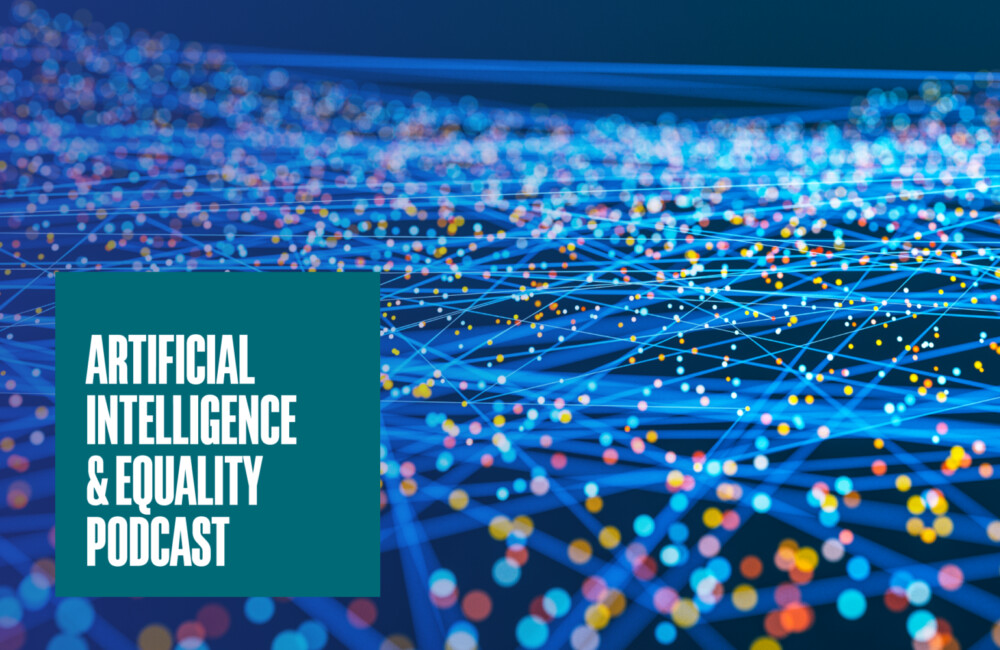Framing ethical perspectives
Democracy is a form of government in which political control is given to the people, whether directly or through the election of governing officials. Currently, large numbers of people have lost faith in this form of government and some elected officials have been working to dismantle democratic institutions. Our programs, events, and experts strive to better understand this development.
Featured Democracy Resources
State of global democracy, U.S. global engagement, and more
JUN 9, 2021 • Podcast
Illiberal Democracy on the Rise: Examining Brazil, Hungary, & India
APR 19, 2022 • Podcast
Why Democracy vs. Autocracy Misses the Point, with Jean-Marie Guéhenno
Senior Fellow Anja Kapsersen is joined by Professor Jean-Marie Guéhenno for a conversation about virtual communities and the advent of the age of data.
FEB 23, 2024 • Article
What Do We Mean When We Talk About "AI Democratization"?
With numerous parties calling for "AI democratization," Elizabeth Seger, director of the CASM digital policy research hub at Demos, discusses four meanings of the term.
Related Initiatives
Ethics & International Affairs Journal
Ethics & International Affairs is the quarterly journal of Carnegie Council. It aims to close the gap between the theory and practice of ethics.
Explore Our Democracy Resources

FEB 2, 2007 • Article
Policy Innovations Digital Magazine (2006-2016): Commentary: Rush, Rush, Rush
Directly or indirectly, saving more time means spending more money, and spending more money means more time making it. Yet, from devastating the U.S. ...

DEC 19, 2006 • Article
Policy Innovations Digital Magazine (2006-2016): Innovations: The AccountAbility Story
AccountAbility's mission is to advance innovations in accountability in order to promote sustainable development. It strives to build the definitions and requirements for accountability and ...

NOV 3, 2006 • Article
Policy Innovations Digital Magazine (2006-2016): Briefings: Information Revolution Likely to Advance Free Speech in China
China’s government news agency Xinhua issued regulations in September that would make it the gatekeeper and revenue collector for reports from all news agencies ...
OCT 31, 2006 • Podcast
Is Democracy Possible Here? Principles for a New Political Debate
If we want substantial political argument--and without it, true democracy is impossible--both "the red" and "the blue" must recognize shared moral principles, says Ronald Dworkin.
SEP 12, 2006 • Podcast
The J Curve: A New Way To Understand Why Nations Rise and Fall
Ian Bremmer describes the political and economic forces that revitalize some states and push others toward collapse.

SEP 7, 2006 • Article
REVIEW: The J Curve
National trade deficits usually get worse before they get better.This pattern resembles a "J" on graphs and so economists call it the J curve. ...

JUL 28, 2006 • Article
Policy Innovations Digital Magazine (2006-2016): Briefings: Diffusing Censorship: Blogging in Iran
The 1979 Islamic revolution and subsequent takeover of the U.S embassy in Tehran isolated Iran from many countries politically and economically, but government censorship of ...
MAY 1, 2006 • Transcript
Iran Awakening: A Memoir of Revolution and Hope
Nobel Prize winner Shirin Ebadi discusses Iran's human rights situation, including gender and religious discrimination, and restrictions on freedom of expression. While democracy is incomplete, ...
MAY 1, 2006 • Podcast
Iran Awakening: A Memoir of Revolution and Hope
Nobel Prize winner Shirin Ebadi discusses Iran's human rights situation, including gender and religious discrimination, and restrictions on freedom of expression. While democracy is incomplete, ...
APR 20, 2006 • Podcast
Jere Van Dyk Interviews Philip Jenkins
Professor Philip Jenkins argues that between 1974 and 1980, "there is a shift in political culture, political rhetoric, which is in a generally conservative direction, although sometimes ...



